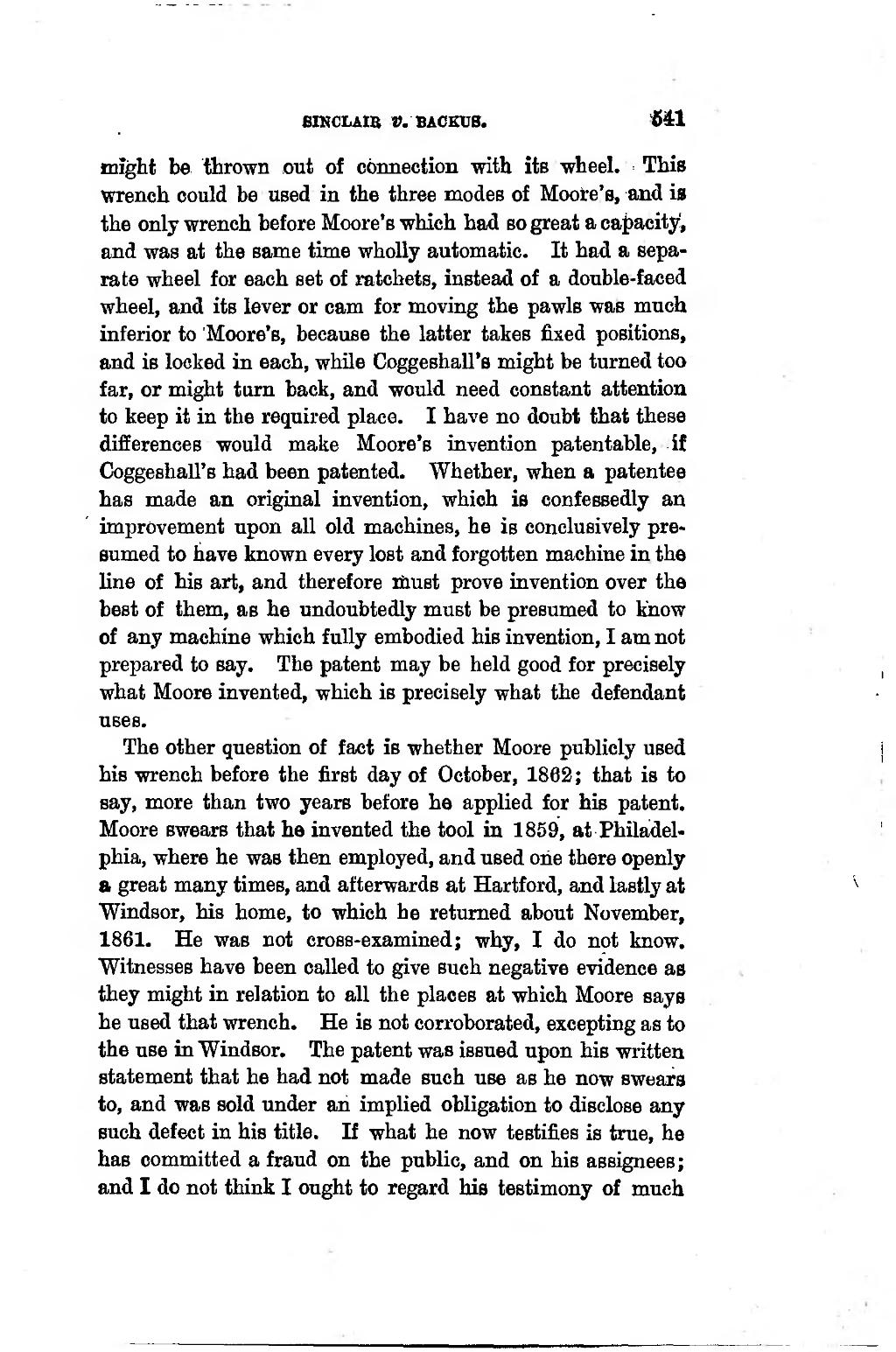6INCLAIS V. 6A0EUB. Ml �mîght be thrown ont of connection with its wheeL This wrench couM be used in the three modes of Moore's, and is the only wrench before Moore's which had so great a capacity, and was at the same time wholly automatic. It had a sepa- ra te wheel for each set of ratchets, înstead of a double-faced •wbeel, and its lever or cam for moving the pawls was much inferior to Moore's, beeause the latter takes fixed positions, and is locked in each, while Coggeshall's might be turned too far, or might tum back, and would need constant attention to keep it in the required place. I have no doubt that these differences would make Moore's invention patentable, if Coggeshall's had been patented. Whether, when a patentee bas made an original invention, which is eonfessedly an improvement upon ail old machines, he is conclusively pre- Bumed to have known every lost and forgotten machine in the line of his art, and therefore lùust prove invention over the best of them, as he undoubtedly must be presumed to know of any machine which f uUy embodied his invention, I am not prepared to say. The patent may be held good for precisely what Moore invented, which is precisely what the defendant uses. �The other question of fact is whether Moore publicly used his wrench before the first day of October, 1862; that is to say, more than two years before he applied for his patent. Moore swears that he invented the tool in 1859, at Philadel- phia, where he was then employed, and used one there openly a great many times, and af terwards at Hartford, and lastly at Windsor, his home, to which he returned about November, 1861. He was not cross-examined; why, I do not know. Witnesses have been called to give such negative evidence as they might in relation to ail the places at which Moore saya he used that wrench. He is not corroborated, excepting as to the use in Windsor. The patent was issued upon his written statement that he had not made such use as he now sweara to, and was sold under an implied obligation to disclose any such defect in his title. If what he now testifies is true, he bas committed a fraud on the public, and on his assignees ; and I do not think I ought to regard his testimony of much ����
